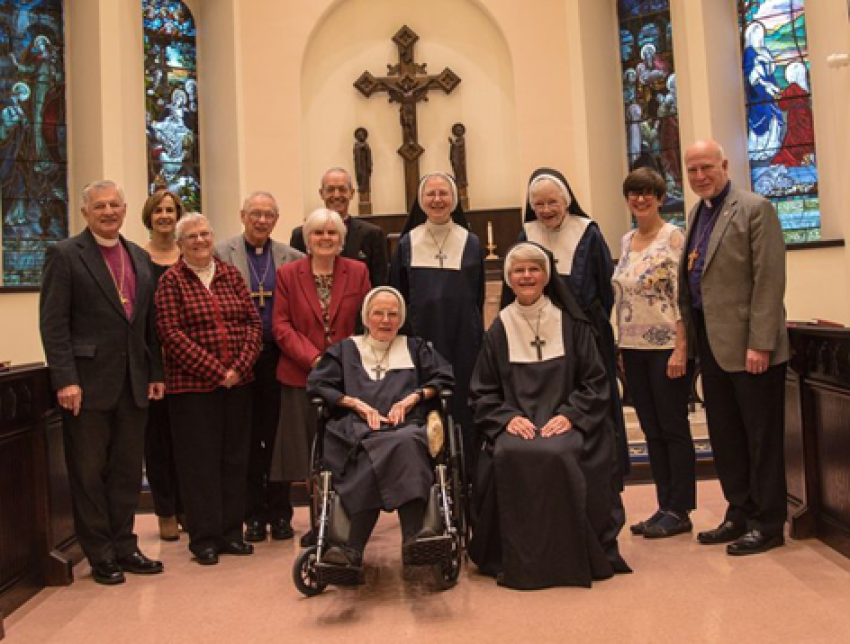Nuns ask Supreme Court to stop New York's abortion healthcare mandate

A group of nuns and other religious organizations in New York are asking the U.S. Supreme Court to hear their case against a 2017 state mandate requiring employers to cover abortions in their employee healthcare plans.
Led by the Roman Catholic Diocese of Albany, a coalition of religious organizations filed an appeal Friday asking the nation’s high court to hear the case of Diocese of Albany v. Lacewell.
The Becket Fund for Religious Liberty and the law firm Jones Day represent the plaintiffs, which include several Catholic dioceses, local branches of Catholic Charities, individual Catholic churches, Catholic and Anglican nuns and faith-based corporations.
The plaintiffs believe that New York’s abortion mandate violates the Free Exercise Clause of the First Amendment to the U.S. Constitution because “it imposes severe burdens on their religious exercise,” including a steadfast opposition to abortion.
“In a 2017 regulation, the New York State Department of Financial Services mandated that employers fund abortions through their employee health insurance plans,” the petition to the Supreme Court explained. “This regulatory command exempts religious entities whose ‘purpose’ is to inculcate religious values and who ‘employ’ and ‘serve’ primarily coreligionists. But religious organizations must cover abortions if they have a broader religious mission (such as service to the poor) or if they employ or serve people regardless of their faith.”
For example, Catholic Charities, which serves the poor regardless of if they are Catholic, is required to fund abortions through its employee health insurance plan despite its connection to the Catholic Church, which is well-known for its opposition to abortion.
Even with the limited exemptions provided to certain religious employers, the regulation mandates that “group and blanket insurance policies that provide hospital, surgical, or medical expense coverage … shall not exclude coverage for medically necessary abortions.” Medically necessary abortions are not explicitly defined in the regulation, but the petition contends that the phrase refers to “abortions in cases of rape, incest, or fetal malformation.”
The petitioners initially sought relief from the abortion mandate in state court, but the state judicial system upheld the regulation. They are now seeking relief from the Supreme Court. The high court consists of six Republican-appointed justices and three justices appointed by Democratic presidents.
“Our faith tells us that every life is precious from the moment of conception until natural death,” said Mother Miriam, of the Sisterhood of Saint Mary, the oldest Anglican religious order in the U.S. “New York has told us that if we want to hold our beliefs about the sanctity of life, we have to stop serving Non-Anglicans. We cannot compromise on our religious beliefs, or in our service to people of all faiths or no faith at all. That’s why we need relief from the Supreme Court.”
According to Becket Senior Counsel Lori Windham, New York instituted its abortion mandate when nuns with the Little Sisters of the Poor “were already two Supreme Court victories into their battle against the contraceptive mandate.”
“Now they’ve won for a third time, sending the clear message that the government can’t make nuns do its dirty work,” Windham said. “New York’s failure to learn from the Little Sisters’ saga that you can’t make nuns pay for abortions is beyond reason. The Court needs to step in and teach New York that lesson.”
The U.S. Supreme Court ruled 7-2 last summer that a Trump administration rule broadening religious exemptions to the Obamacare mandate requiring employers to include contraceptive coverage in their employees’ healthcare plans did not violate the Constitution.
In 2016, the Supreme Court vacated lower court rulings against the Little Sisters of the Poor back to the lower courts, a decision that resulted in the case once again making its way up to the Supreme Court.
Attorneys for the petitioners argue that the Supreme Court’s previous rulings in favor of the Little Sisters of the Poor have set a precedent that will require the justices to strike down New York’s abortion mandate. They warned that failure to do so would have adverse impacts on their clients’ ability to do business in accordance with their faith.
“The consequences could hardly be more severe, should this Court not intervene,” the petition argued. “New York churches and religious ministries will be forced to cooperate in what they consider to be grave evil — or stop operating. Before that happens, the Court should at least consider whether the Constitution allows it.”
“It is hard to imagine a more critical legal question for Petitioners than whether New York can force them to cover abortions in their employee health plans,” the petition continues. “And although the impact on religious adherents in New York alone would support review, the importance of this issue travels well beyond New York’s borders — this case presents critical questions about a fundamental constitutional right.”



























